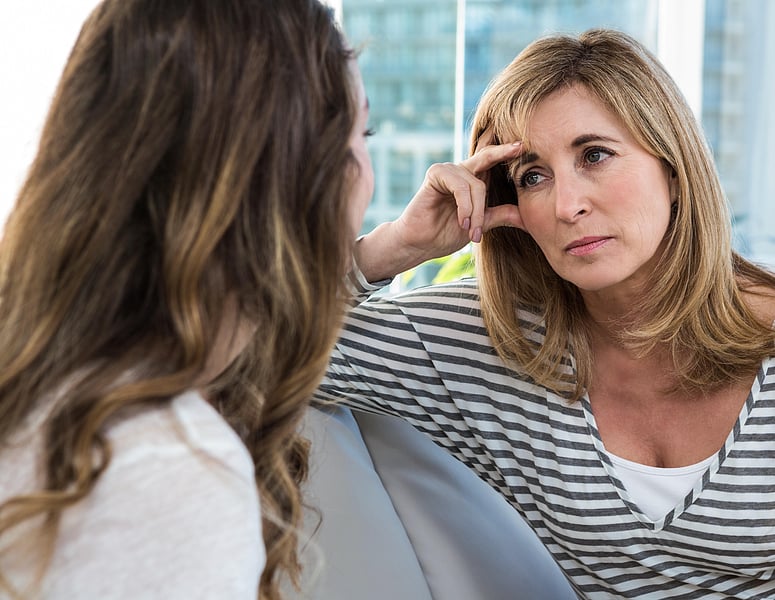Patient Resources
Get Healthy!
Talking to Kids About Abortion Bans Can Be Tough. Experts Offer Guidance
- June 28, 2022
- Denise Mann
- HealthDay Reporter

The U.S. Supreme Court's recent decision to overturn Roe vs. Wade and the resulting media coverage is likely causing anxiety for many people, including children.
On Friday, the high court's ruling on Dobbs v Jackson Women's Health Organization ostensibly kicked decisions about restricting or banning abortion back to the states.
This is a lot to process, and parents and caregivers should talk to their kids about what is happening and what it may mean for their futures, said Kimberly Wolf, an adolescent health educator in Houston, and author of "Talk with Her: A Dad's Essential Guide to Raising Healthy, Confident, and Capable Daughters."
This is not a one-time or one-size-fits-all conversation, Wolf said. "These conversations are very personal and how you approach them will depend on your child's age and what their individual concerns might be with regard to the overturning of Roe vs. Wade," she said.
"Young people will struggle to make sense of what the ruling means for them and their rights, and they will inevitably come to some wrong conclusions," Wolf said.
Stick to the facts, she said. "If you don't know all of the answers, it is OK to say you need to look something up or research the specific question your child has together," Wolf said. "Try to explain the facts clearly to your child, so that they understand how the ruling may or may not affect their home state and their own search for reproductive health care support in the future."
This is a conversation both moms and dads should have. "If fathers are talking to their daughters, they are sending the valuable message that men can be knowledgeable and sensitive to these topics and that they can be sources of support and guidance, should girls ever need them," Wolf said.
There are lots of opinions, memes and information out there on this decision, and some of it is scary, she noted.
"Make sure your child knows they should talk to knowledgeable adults, like yourself or a health care practitioner, if they have questions or need information," she said. "Whenever you feel like you would rather wait or that maybe you shouldn't discuss it, remember that you would rather your children gather information from you, rather than friends or the media, which can be misleading."
This is not an easy conversation to have, but it is an important one, agreed Thea Gallagher, a clinical assistant professor in the Department of Psychiatry at NYU Langone Health in New York City. It's hard to talk to kids about conception, sex, and sexual development, and this discussion touches on all of these topics.
"Share your thoughts and opinions as authentically as possible," Gallagher said. "You don't want to scare them as panic doesn't help anyone," she said. "You can say, 'I don't agree with these views and this is why.'"
If it is age-appropriate, you can take your son or daughter to a protest, too, Gallagher said.
More information
The Guttmacher Institute offers up-to-date information on how the states are approaching abortion.
SOURCES: Kimberly Wolf, EdM, adolescent health educator, Houston; Thea Gallagher, PhD, clinical assistant professor, Department of Psychiatry, NYU Langone Health, New York City

